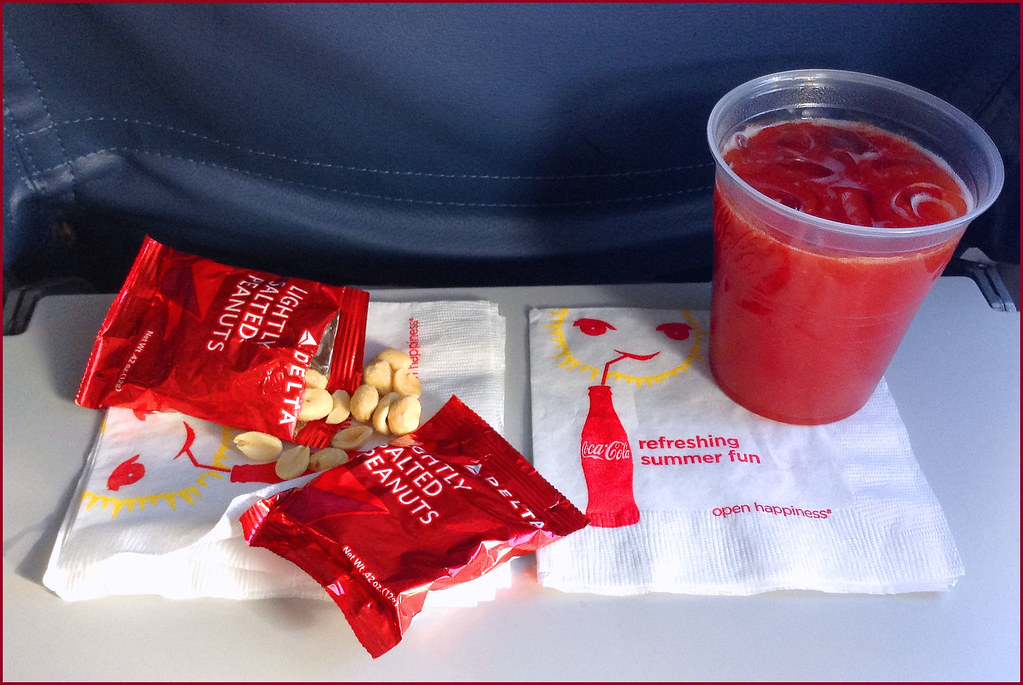
Once, when a flight attendant offered me a bag of peanuts, I asked for two. The passengers next to me, a couple in their thirties, turned their heads in my direction, eyebrows lifted, as if I’d asked for the entire snack cart. Their heads whipped back to the flight attendant. As she leaned in with the two tiny bags, two sets of eyes followed the peanuts’ progress from her hand to mine. I saw envy on their faces. And a trace of indignation. “Hey!” they silently screamed, “He asked for more peanuts—and got away with it!”
As my seatmates stoically munched their single bags and I, transgressor and glutton, gorged myself on two, the absurdity struck me. Looking from my window into the infinite blue, a cosmic question took hold:
If you won’t ask for peanuts, what will you ask for?
The ask-averse attitudes of my seatmates showed up again during a radio program in which I was asked about the book I’m writing, on the importance of asking for what we want. Evidently worried by this, a caller remarked, in a gotcha! tone, “Well, what if everybody asked for what they wanted?” I assured him he had no need to fret because, of the hundreds of people I’ve asked, “What were the big asks in your life?” most were unable to recount any. And a large number confessed a reluctance to ask in general. Judging from the caller’s silence, he was satisfied to hear that society was safe from collapse.
My book, The Big Ask Book (publisher TBA) looks at why we should ask, why we don’t, and how to ask effectively, whether as a request or inquiry. It explores asking as a life skill, one greatly overlooked. It does not present asking as a substitute for healthy self-reliance, initiative-taking, or disciplined work. But it does champion asking as a tool for doing those things more smartly and resourcefully.
While a few segments of the book draw on compelling research from the social sciences, I am not an academic. Though an inquisitive nature and some six decades on the planet have given me cherished insights into the behavior of my fellow humans, I am not a social psychologist, psychotherapist, or psycholinguist. There are no lab coats in my office, no clipboards. My approach to the subject of asking is primarily intuitive, practical, and anecdotal.
All of us, if reasonably curious and observant, have acquired insights into the human condition. And I humbly offer mine in the form of this book. I’ve learned and applied the practice of asking in every facet of my professional life. I was an actor onstage and on television. A writer of marketing and educational media across a diverse range of organizations and industries. A leader of exhibit sales and customer engagement seminars for dozens of Fortune 500 companies in the pre-pandemic heyday of live trade shows. An executive speechwriter. And, happily to this day, a presentation coach helping people with something to say, say it better. Whether for opportunities or information, I’ve asked a lot.
At the centerpiece of my book are ask-related stories I continue to gather from my conversations with people from all walks of life. My interview subjects range from laser-focused high achievers who ask boldly and often, to shy folks who asked, at least once, in unforgettable if not life-changing ways.
Which brings me to my ask. If you have an ask story from your life that you think could be a good fit for the book, will you send me a short summary? My website, bigaskbook.com walks you easily through the process. I’ll get back to you within three business days to let you know if it’s a good fit for the book. If your story’s got potential, I’ll schedule a phone interview with you.
Individually and collectively, our stories have the power to inspire hope; no small thing in our turbulent times. With skill and perhaps a flash of luck, we may find that a simple ask, like another tiny three-letter word, key, has the potential to open doors, whether for the moment or the duration. And, with a little courage, we’ll ask for more than peanuts.
photo by Ron Cogswell/Flickr
Paul Quinn is author of a book-in-progress about the power of asking, from which this story is excerpted. As founder of See The Potential LLC, he coaches leaders at all organizational levels in giving presentations that win for all stakeholders.

0 Comments